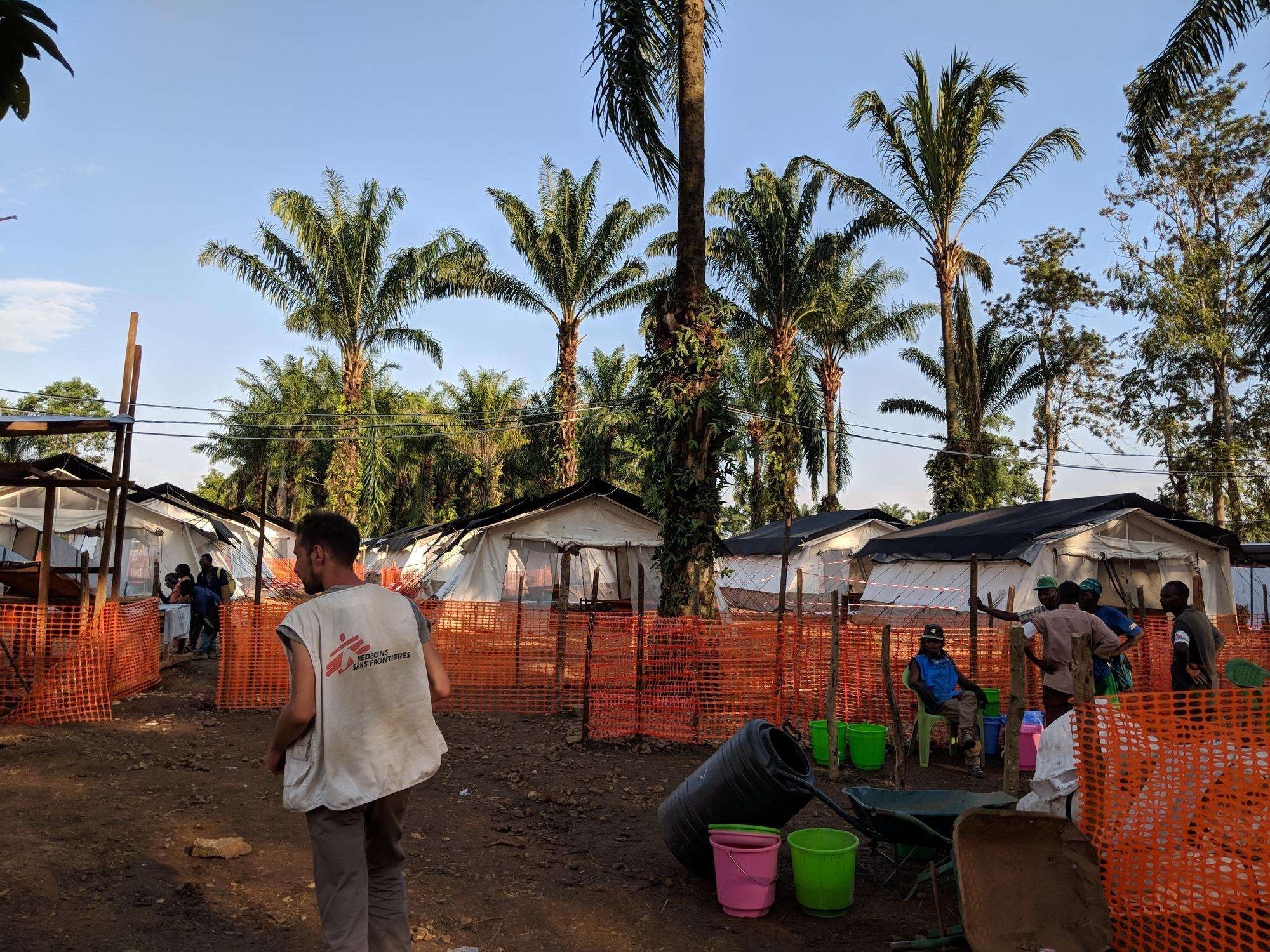NEW YORK, AUGUST 16, 2018—The international medical humanitarian organization Doctors Without Borders/Médecins Sans Frontières (MSF) opened an Ebola treatment center on Tuesday, August 14 in Mangina, a small town considered to be the epicenter of the outbreak in North Kivu, Democratic Republic of Congo. A total of 37 patients are currently hospitalized in this facility, with 31 of those cases confirmed and six suspected cases.
“Among our patients, we have several colleagues from the Congolese health system,” said Gwenola Seroux, MSF emergency programs coordinator. “They were the first to respond, and some were exposed to the virus.”
Before this center opened, MSF was working in an isolation unit in the area to improve safety and implement protection measures. All patients from that unit have been transferred to the new Ebola treatment center.
In order to address some of the response priorities set by health authorities, MSF is working along the route between Mambasa and Makeke in Ituri province, visiting health centers to set up isolation rooms, undertaking surveillance activities, and liaising with community health workers to raise awareness about Ebola. Infection prevention and control protocols are also being reinforced in the region—and in MSF’s existing non-Ebola projects in the area—to prevent further spread of Ebola, which is a critical pillar of Ebola outbreak response.
In neighboring Uganda, MSF is part of the national task force to ensure effective preparations are in place to tackle the risk of cross-border contagion.
Critical Ebola prevention and treatment activities such as contact tracing, community outreach, surveillance, alert investigation, vaccination, and health promotion are inevitably hindered by the fact that North Kivu is one of the most unstable areas in the region. Ongoing conflict and heavy military intervention have resulted in a high number of displacements, worsening the chronic problem of limited access to healthcare. Additionally, large movements of people can happen suddenly in response to an outburst of violence.
According to the Ministry of Health, the outbreak, which was declared on August 1, has already killed 41 people. A vaccination program is currently being run by the Ministry of Health with the support of the World Health Organization in the area most affected by the outbreak.




